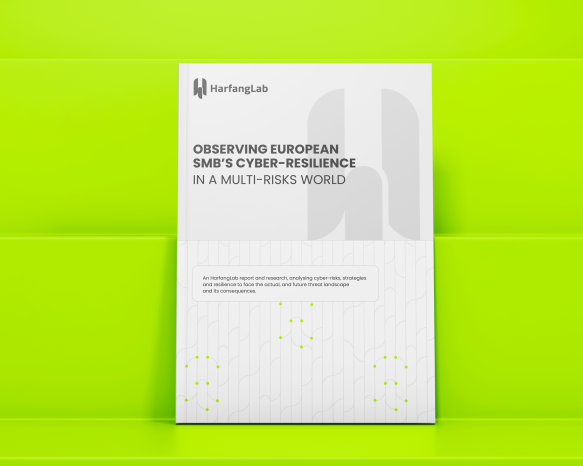Report: Observing European SMB’s Cyber-Resilience in a Multi-Risks World
With NIS 2 regulations in Europe, and geopolitical conflicts posing an increasingly significant cyber threat to European organizations, improving the cyber resilience of small and medium-sized enterprises has become a key issue.
HarfangLab and Sapio Research conducted a study of 750 SMBs in France, Germany, the Netherlands, and Belgium.
Dig into 2024 state of corporate cybersecurity in Europe:
- How do companies mitigate cyber risk?
- What is their perception of European data protection and cybersecurity regulations and standards?
- What events and factors increase cyber risk for European SMEs?
- How can SMEs best cope with the changing nature of the cyber threat landscape?

What you will find in this report
Cyber risk considered severe
62% of French respondents consider cyber risk to be extremely severe or very severe, compared with only 38% in Belgium, 37% in Germany, and 24% in the Netherlands.

A cyber-resilient Europe?
France is one of the most confident countries in Europe when it comes to its ability to detect cyber incidents, with 75% of respondents rating their level as “fairly good” or “excellent” in this area, compared to 65% of respondents in Belgium, 73% in Germany, and 66% in the Netherlands.
Cyberattacks with serious consequences
99% of respondents are concerned about the consequences of a cyberattack, particularly information or data leaks, followed by the destruction of information systems, cyber espionage, and having to pay a ransom.
Download the report and discover key figures, the stakes, and strategies to face the current and future threat landscape